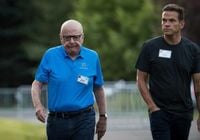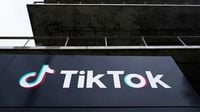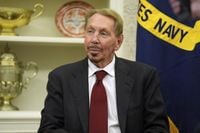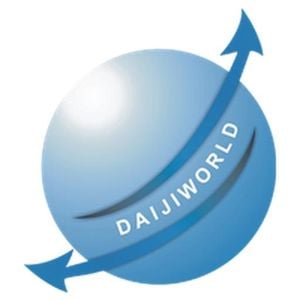In a dramatic turn for one of the world’s most popular social media platforms, the Trump administration has laid out a plan that would see American tech giant Oracle take the reins of TikTok’s U.S. operations, shifting control of the platform’s powerful algorithm and user data away from its Chinese parent company, ByteDance. The proposed deal, which also ropes in a cast of prominent American investors including Rupert Murdoch, Lachlan Murdoch, Michael Dell, and investment firms like Silver Lake and Andreessen Horowitz, is being framed as a solution to longstanding national security concerns and a flashpoint in ongoing U.S.-China economic relations.
According to multiple sources, including The Wall Street Journal and Reuters, the new arrangement would give Oracle a licensed copy of TikTok’s recommendation algorithm—the secret sauce behind the app’s addictive, personalized video feed. Oracle would be tasked with retraining the algorithm using U.S. data, ensuring, as one Trump administration official put it, that the system is “behaving appropriately.” The U.S. government, for its part, will not have a stake or a seat on the board of the new joint venture, a point repeatedly emphasized by senior White House officials.
“It wouldn’t be in compliance if the algorithm is Chinese. There can’t be any shared algorithm with ByteDance,” a spokesperson for the House Select Committee on China told AP, underscoring the centrality of the algorithm in the security debate. American officials have long warned that ByteDance’s control over the recommendation system could allow Chinese authorities to manipulate what U.S. users see—a concern that has animated bipartisan action in Congress and fueled heated rhetoric on both sides of the Pacific.
The deal’s structure, as described by President Donald Trump and White House press secretary Karoline Leavitt, would see TikTok U.S. governed by a seven-member board, six of whom would be Americans. ByteDance is expected to retain a 20% or smaller stake in the new entity, with only one representative on the board—excluded from the app’s security committee. The group of American investors is a who’s who of tech and media power: Oracle co-founder Larry Ellison (who remains a top executive and recently helped engineer Skydance’s merger with Paramount), Dell Technologies CEO Michael Dell, media moguls Rupert and Lachlan Murdoch (through Fox Corp), and private equity titans Silver Lake and Andreessen Horowitz.
President Trump, speaking on Fox News’ “The Sunday Briefing,” described the group as “American patriots,” adding, “A man named Lachlan is involved. Lachlan Murdoch... Rupert [Murdoch] is probably gonna be in the group, I think they’re going to be in the group.” He praised their credentials, saying, “I think they’re going to do a really good job,” and credited TikTok with helping build his support among young voters in the 2024 presidential election, according to The Nightly.
The road to this deal has been anything but smooth. TikTok, with its 170 million American users, has become a cultural and political juggernaut, shaping conversations from viral dances to election narratives. But its ties to ByteDance and the Chinese government have made it a lightning rod for suspicion in Washington. Congress, citing national security fears, had ordered TikTok to be shut down for U.S. users by January 2025 if ByteDance did not divest its American assets. President Trump has repeatedly extended the deadline, most recently to December 16, 2025, as negotiations have dragged on. The process, according to administration officials, might not wrap up until early 2026—roughly a year after the original ban was supposed to take effect.
The deal is also entangled in the broader context of U.S.-China relations, with Beijing wielding TikTok as a bargaining chip in trade and tariff negotiations. Trump and Chinese President Xi Jinping are set to meet at the Asia-Pacific Economic Cooperation forum in South Korea on October 31, with the fate of TikTok reportedly on the agenda. Any final agreement will require China’s sign-off and will have to clear a gauntlet of regulatory approvals on both sides of the Pacific.
White House press secretary Karoline Leavitt, in a Saturday briefing, sought to reassure American users: “TikTok users in the U.S. will be able to see videos posted by users in other countries and vice versa.” The intention, she said, is to maintain the seamless experience that has made TikTok a global sensation. But experts caution that even subtle tweaks to the recommendation algorithm—now to be retrained with U.S. data—could change the app’s feel in ways that users might notice. “Social media is just as much about the culture as it is the technology, and how users will take to new ownership and potentially a new version of the app is still an open question,” Jasmine Enberg, an analyst at eMarketer, told AP.
The list of investors reflects not only deep pockets but also strategic interests. Oracle, founded nearly five decades ago, has evolved from a database software pioneer to a powerhouse in cloud computing and artificial intelligence. Larry Ellison’s recent moves—including his involvement in the Skydance-Paramount merger—signal his growing influence in media. Silver Lake, with a history of major tech buyouts (including Dell and Skype), brings financial muscle and industry savvy. Michael Dell’s presence adds another layer of tech leadership, while the Murdochs’ Fox Corp brings media reach and, perhaps, a certain political flavor.
Interestingly, the Murdochs’ investment is expected to come through Fox Corp, not as individuals or via News Corp, according to sources quoted by Reuters. News Corp, which owns The Wall Street Journal, Dow Jones, and Fox News, has occasionally clashed with Trump, including a recent defamation suit over reporting on his ties to Jeffrey Epstein—a reminder that business and politics remain deeply intertwined in the TikTok saga.
Meanwhile, the market has been watching closely. As of September 22, 2025, retail sentiment was ‘bullish’ for News Corp and Oracle, but ‘bearish’ for Dell, according to Stocktwits. Oracle’s role as the platform’s new guardian has been met with particular enthusiasm among investors, while the Murdochs’ involvement has sparked speculation about potential shifts in TikTok’s content moderation and editorial direction.
There’s also a backdrop of broader economic interventions by the Trump administration, which has taken stakes in companies like Intel and allowed Nvidia to sell certain AI chips to China in exchange for a share of the sales—moves that some business leaders and lawmakers have criticized as departures from free-market norms. The TikTok deal, with its intricate web of investors and government oversight, is emblematic of these new, more interventionist approaches to tech and trade policy.
For now, TikTok’s American users can keep scrolling, at least while the regulatory machinery grinds on. Whether the platform’s uniquely viral magic survives the transition remains to be seen, but the stakes—cultural, political, and economic—couldn’t be higher.






